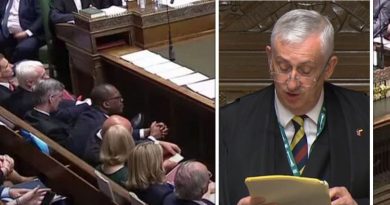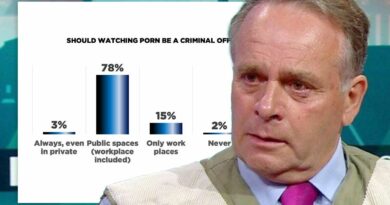Denver ballot measures: 13 questions to go before voters in November
Denver voters will be tasked this November with deciding the most citizen-initiated measures to appear on the city’s ballot in at least two decades, spanning topics from land conservation and pandemic research to homelessness.
Ahead of this week’s deadline, the City Council approved six citizen-led measures alongside two more measures proposed by city officials and another five from Mayor Michael Hancock that make up a $450 million bond proposal.
Alton Dillard, spokesman for the Denver Clerk and Recorder’s Office, said this year’s ballot has more citizen-initiated ordinances than any other he could find going back to 2001 and likely further. Typically an election will have between one and three, he said.
The clerk’s office will mail out ballots Oct. 8 and the city’s 24-hour ballot drop boxes will open for returns the same day, he said. The city’s blue book, explaining each measure, will be mailed out to voters even before then.
While the ballot is packed, Dillard said voters are in a good position to take their time since they’ll have weeks to scrutinize each proposal before casting their votes.
“Denver voters need to be happy that they have a model geared toward making it easy for people to vote,” Dillard said.
Measures on Denver’s November ballot will begin with Hancock’s five bond proposals, each of which must be approved by voters before the city can borrow the money, and lead into the initiated ordinances:
Referred Question 2A (Denver Facilities System Bonds): $104 million for Denver facilities projects like repairs and improvements at the Denver Botanic Gardens, Denver Museum of Nature and Science, Bonfils Theater Complex and the Denver Zoo; two new libraries; renovation of a city-owned youth empowerment center; and accessibility upgrades for city buildings.
Referred Question 2B (Denver Housing and Sheltering System Bonds): $38.6 million for housing and shelter projects like building or renovating shelters for the homeless. City officials could also use the money to buy buildings or convert structures into shelters.
Referred Question 2C (Denver Transportation and Mobility System Bonds): $63.3 million for transportation projects like expanding Denver’s sidewalks; renovating existing bike lanes and adding new ones; rebuilding stretches of the Morrison Road corridor to add a cultural and arts district; and building an urban trail downtown.
Referred Question 2D (Denver Parks and Recreation System Bonds): $54 million for parks projects in northeast and south Denver; restoring athletic courts and fields; replacing playground and recreation equipment; and rebuilding the Mestizo-Curtis Park pool.
Referred Question 2E (National Western Campus Facilities System Bonds): $190 million to build a new arena at the National Western Center campus and to renovate the existing 1909 Building.
Referred Question 2F (Safe and Sound): When the Denver City Council approved new group-living rules for the city in February allowing up to five unrelated people to live in a single home, Safe and Sound Denver opposed the move. Now, the group is asking voters to repeal the council’s decision. Voting to repeal the group living change would also overturn the council’s decision to expand the number of available plots in the city for halfway homes, which previously were only allowed in industrial areas.
Referred Question 2G (Fill Future Vacancies for Independent Monitor): The Office of the Independent Monitor is responsible for overseeing all disciplinary investigations into Denver’s police and sheriff’s departments, for recommending policy changes and investigating other incidents like how police handled the George Floyd protests in 2020. The position is currently appointed by the mayor, but this measure would instead put that appointment in the hands of the volunteer Citizen Oversight Board.
Referred Question 2H (Election Day Change): Proposed by Denver Clerk and Recorder Paul Lopez, the measure would move up the city’s general election from the first Tuesday of May in odd-numbered years to the first Tuesday in April. The move would give the clerk’s office more time to send mail ballots to people traveling or living abroad in case of a June runoff election.
Initiated Ordinance 300 (Pandemic Research Fund): This measure would increase Denver’s local marijuana sales tax from 10.3% to 11.8% in an effort to raise around $7 million annually for the University of Colorado Denver CityCenter, the university’s partnership with the city and local businesses. The money would be used to research technology that could be used to keep people safe during a pandemic and other preparedness and recovery methods. Three-quarters of the money would be spent researching personal protective equipment, disinfection and sterilization technology, and design features of physical spaces. The remaining quarter would be earmarked for researching public policy and planning. No more than 8% of the money raised by the tax increase could be spent on administrative expenses.
Initiated Ordinance 301 (Parks and Open Space): This would require voter approval before any commercial or housing construction could begin on any parks or city-owned land covered by a conservation easement. This would include the 155-acre Park Hill Golf Course property, where the developers and property owners at Westside Investment Partners want to build.
Initiated Ordinance 302 (Conservation Easement): A countermeasure to the Parks and Open Space measure. This measure was proposed by Westside Investment Partners and would amend the definition of “conservation easement” to apply only to those reviewed and approved by the state Division of Conservation. This would effectively allow development on the Park Hill Golf Course property, currently covered by an easement.
Initiated Ordinance 303 (Let’s Do Better): This measure, proposed by Garrett Flicker, chair of the Denver Republican Party, would ban anyone from camping on private property without written permission from owners. It would also allow sanctioned camping sites in up to four places on public property, requiring amenities like running water, restrooms and lighting. The measure would require city officials to enforce the camping ban within three days of receiving a complaint and allows people to sue the city if it fails to clear up the camp.
Initiated Ordinance 304 (Enough Taxes Already): Also proposed by Flicker, this measure would cap Denver’s aggregate sales and use tax rate at 4.5%, down from its current 4.81%. It would also require the city to reduce any other new sales and use taxes if voters approve new ones above that 4.5% cap.
Source: Read Full Article



